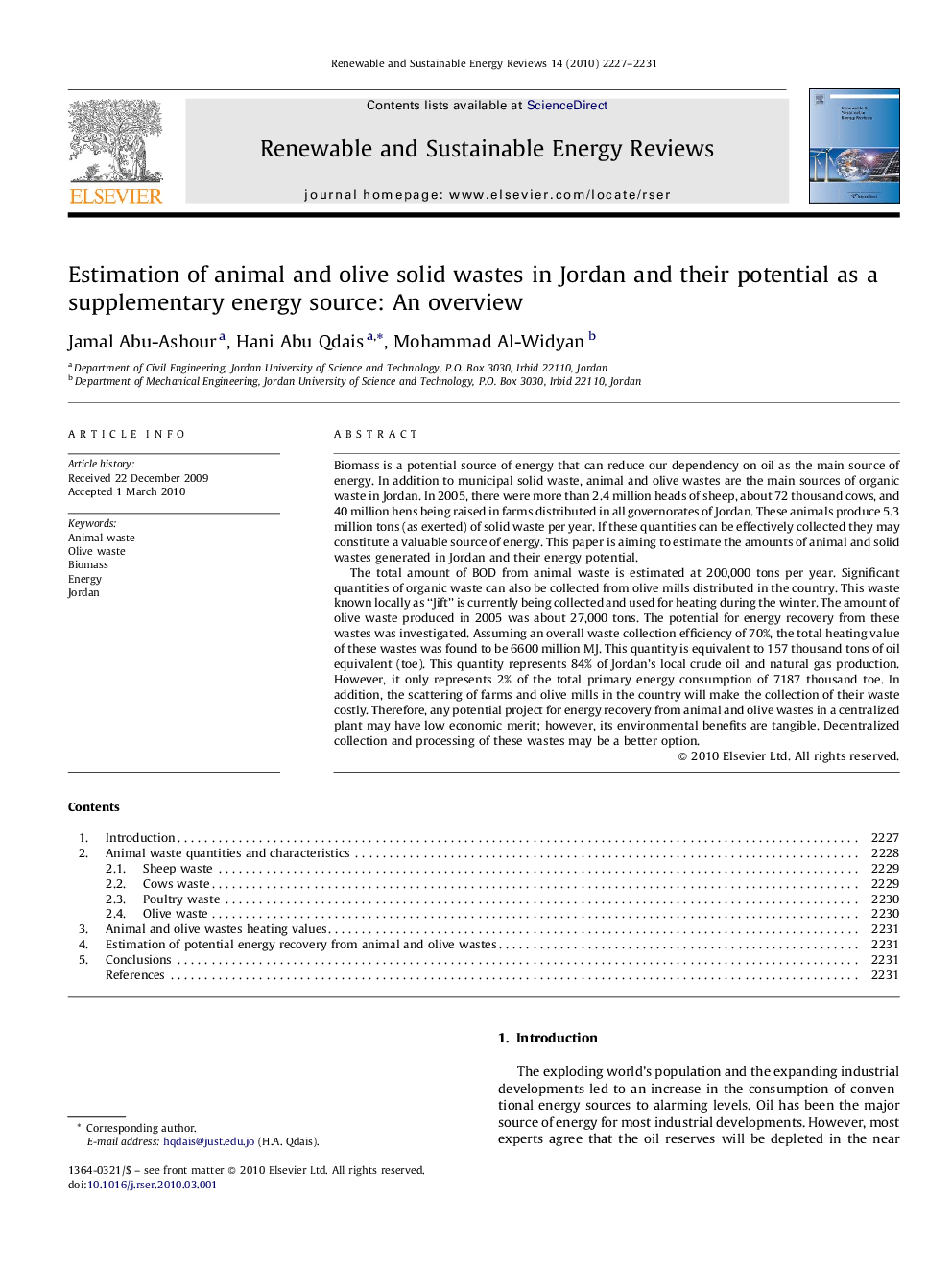| کد مقاله | کد نشریه | سال انتشار | مقاله انگلیسی | نسخه تمام متن |
|---|---|---|---|---|
| 1751763 | 1018423 | 2010 | 5 صفحه PDF | دانلود رایگان |

Biomass is a potential source of energy that can reduce our dependency on oil as the main source of energy. In addition to municipal solid waste, animal and olive wastes are the main sources of organic waste in Jordan. In 2005, there were more than 2.4 million heads of sheep, about 72 thousand cows, and 40 million hens being raised in farms distributed in all governorates of Jordan. These animals produce 5.3 million tons (as exerted) of solid waste per year. If these quantities can be effectively collected they may constitute a valuable source of energy. This paper is aiming to estimate the amounts of animal and solid wastes generated in Jordan and their energy potential.The total amount of BOD from animal waste is estimated at 200,000 tons per year. Significant quantities of organic waste can also be collected from olive mills distributed in the country. This waste known locally as “Jift” is currently being collected and used for heating during the winter. The amount of olive waste produced in 2005 was about 27,000 tons. The potential for energy recovery from these wastes was investigated. Assuming an overall waste collection efficiency of 70%, the total heating value of these wastes was found to be 6600 million MJ. This quantity is equivalent to 157 thousand tons of oil equivalent (toe). This quantity represents 84% of Jordan's local crude oil and natural gas production. However, it only represents 2% of the total primary energy consumption of 7187 thousand toe. In addition, the scattering of farms and olive mills in the country will make the collection of their waste costly. Therefore, any potential project for energy recovery from animal and olive wastes in a centralized plant may have low economic merit; however, its environmental benefits are tangible. Decentralized collection and processing of these wastes may be a better option.
Journal: Renewable and Sustainable Energy Reviews - Volume 14, Issue 8, October 2010, Pages 2227–2231